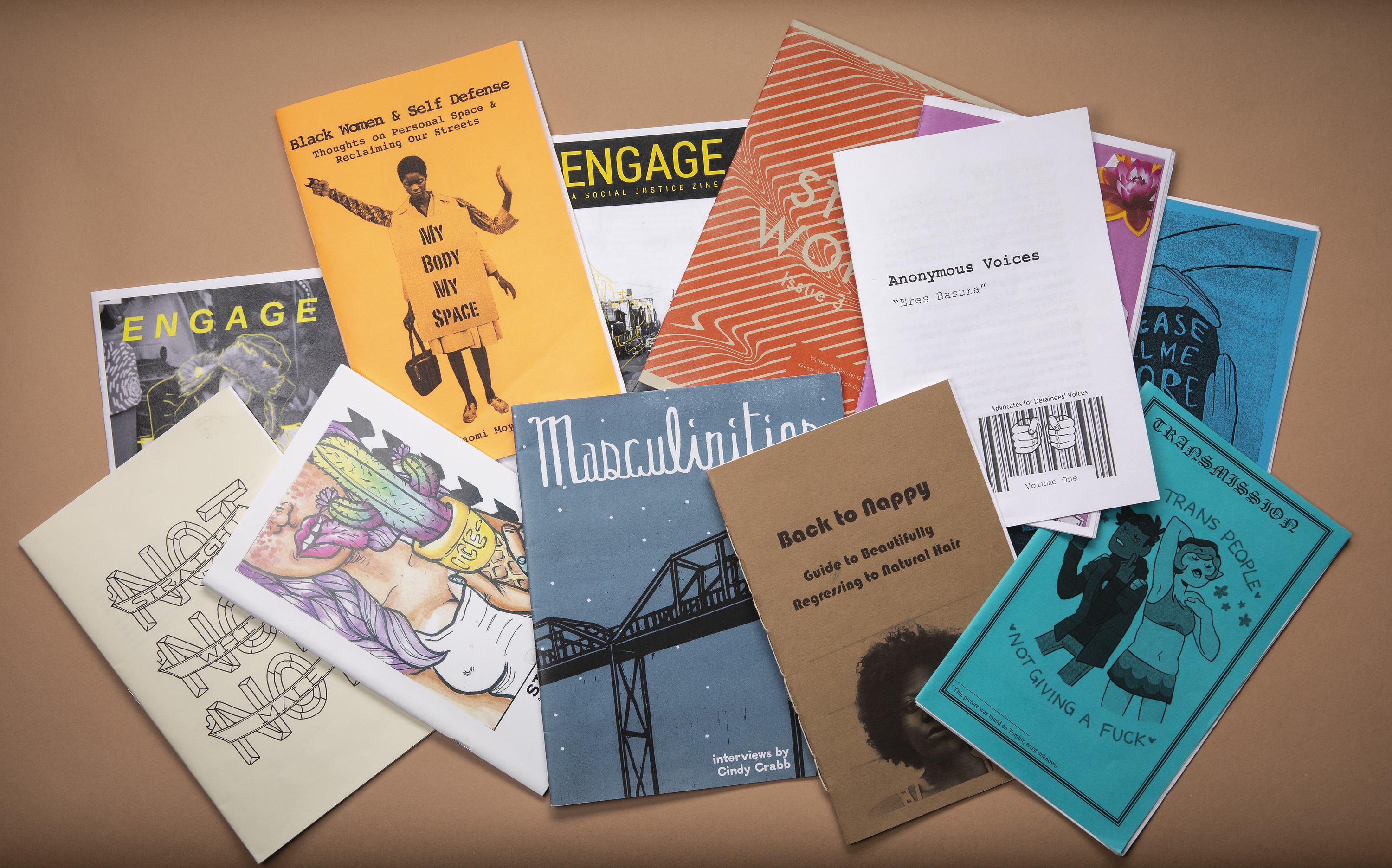The modern era of zines can be traced to the 1930s, when sci-fi enthusiasts started creating and sharing “fanzines” to celebrate the genre.
Since then, zines have played an integral role in developing many subcultures, such as the burgeoning queer community of the ’50s, the punk-rock scene of the ’70s, and the Riot Grrl feminist movement of the ’90s.
Today, zines continue to be a powerful tool of personal expression and radical thought. They are still crafted by hand, photocopied, and stapled together, then mailed or sold at independent bookstores and zine fairs. Passed directly from the creator to the reader, zines offer a uniquely raw, intimate experience, much like a diary. They tend to address issues rarely covered by major publications, from the personal to the political, and they offer uncensored insight from a multitude of voices and perspectives. Ultimately, zines are about the human experience, which is what makes them so relatable and enduring.










